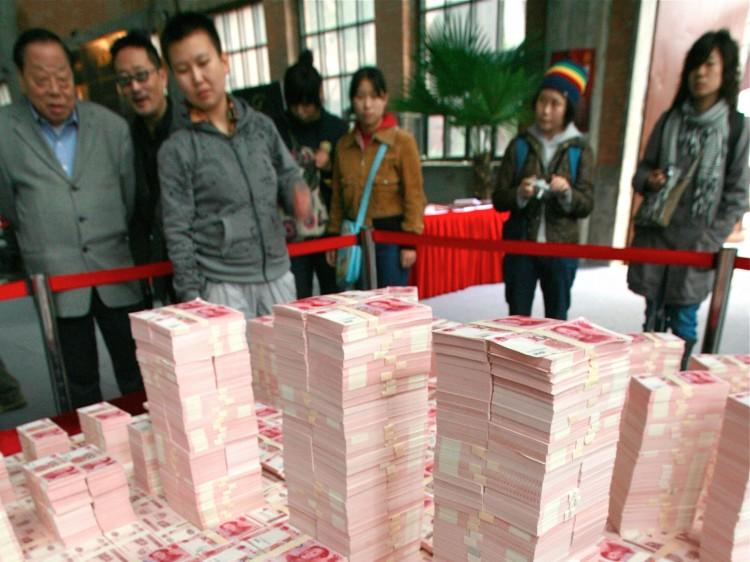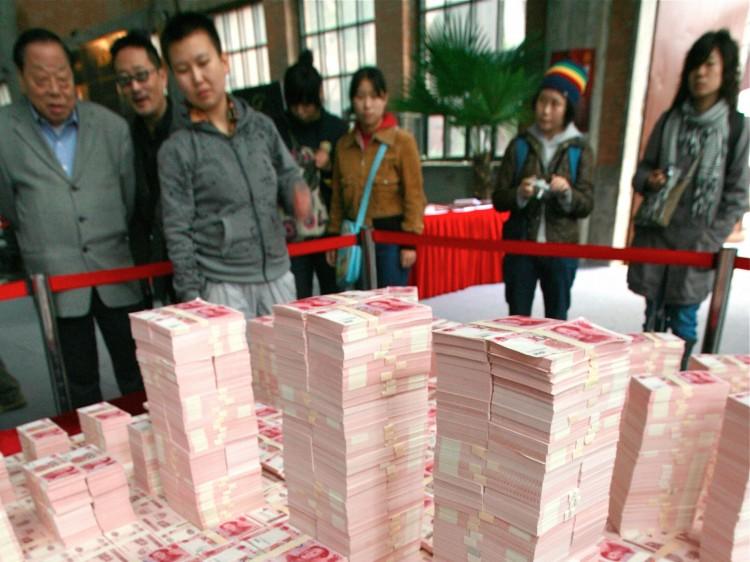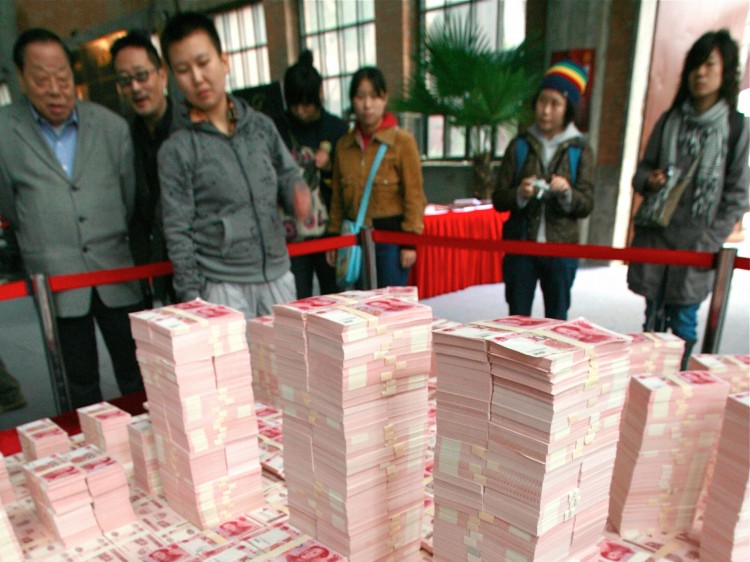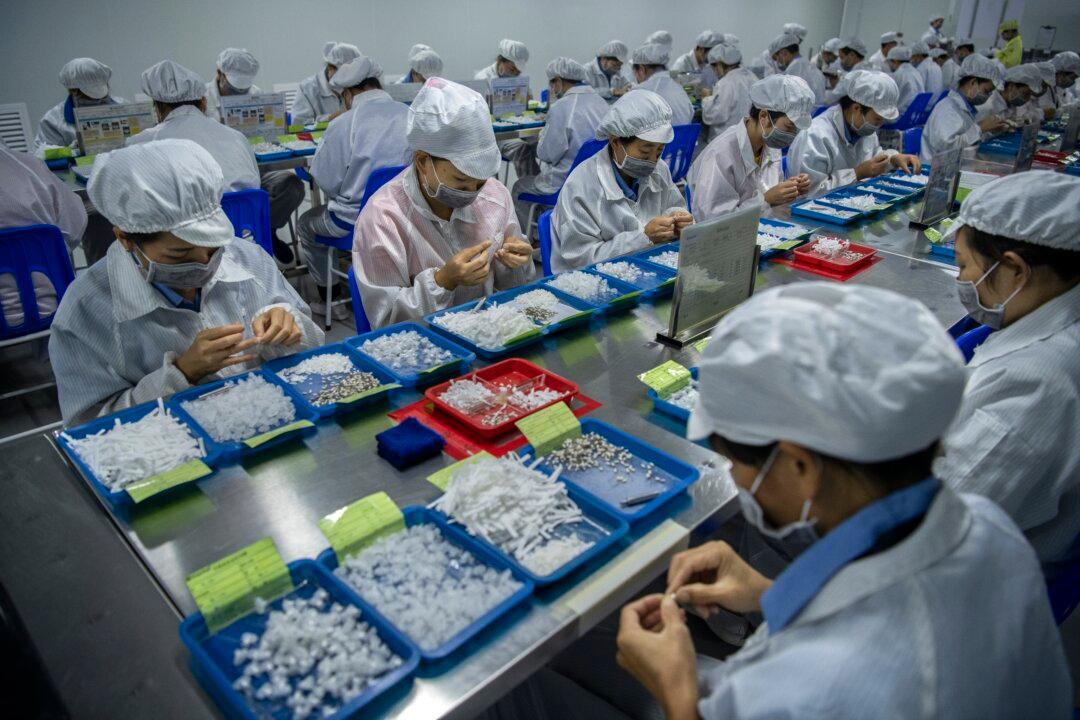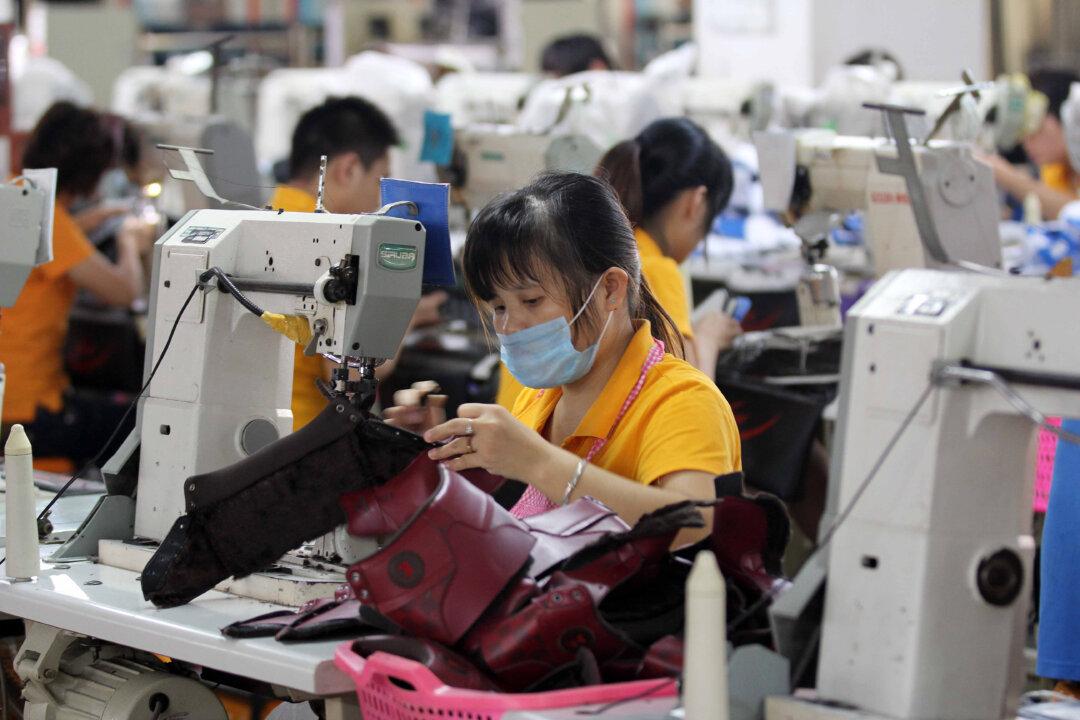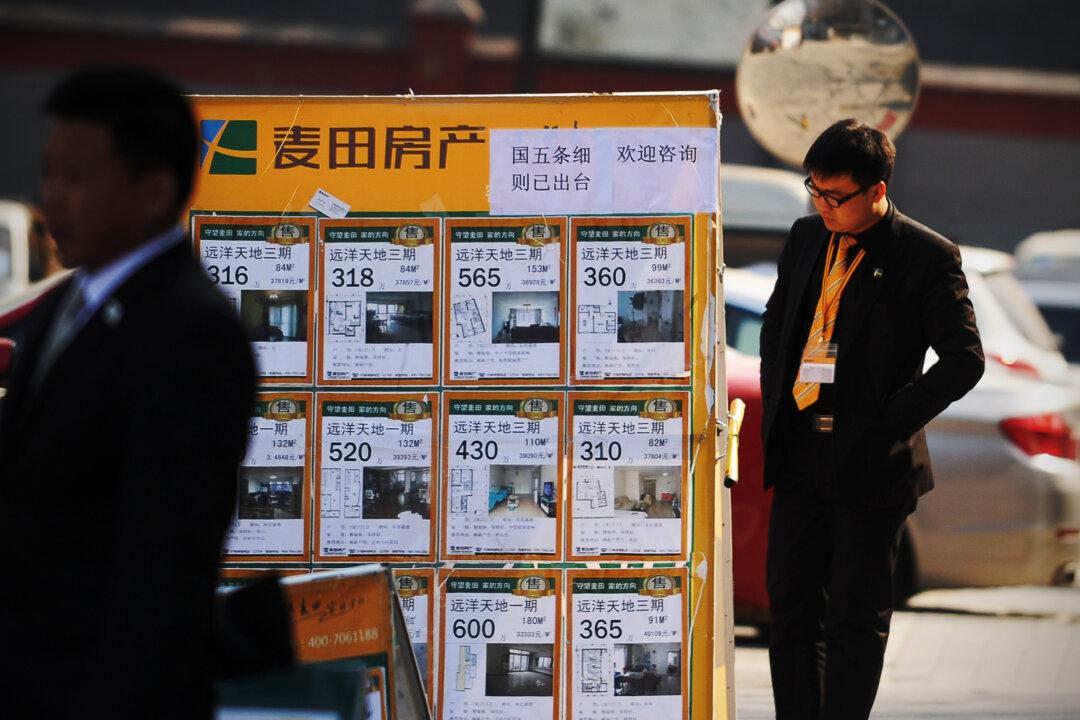A measure for Chinese money supply surpassed 94.37 trillion yuan (US$15 trillion), twice the country’s gross domestic product, this year. Given the aggressive growth, experts have begun suspecting that it will have an impact on inflation, and other economic consequences.
The latest data released by the People’s Bank of China—the country’s central bank—indicates that the broad money supply (known as M2) stands at 94.37 trillion yuan, which shows growth exceeding 14 percent for the first time this year, according to Caijing, a well-known financial publication. M2 is measured by taking into account notes and coins in circulation, as well as financial instruments such as checking accounts and deposits.
Economists generally understand that high levels of credit growth indicate lax monetary policy, and can lead to inflation.
At the same time, a more narrow measure of money supply, (M1), is at 28.68 trillion yuan, which is a 7.3 percent year-on-year growth, and an increase of 2.8 percent compared to the end of last month.
Economists sometimes decide whether there is too much money in a system by using the ratio between money supply and GDP. In developed economies in the West, the ratio between M2 and GDP is below one. In emerging market countries, M2 is usually 1 to 1.5 times GPD.
China’s M2 at the end of September this year stood at double GDP, based on a GDP value of 47 trillion yuan (US$7.5 trillion) for 2011, according to the Chinese Bureau of Statistics.
Even if the comparison is made to the recorded M2 of $10.12 trillion for the United States, Chinese M2 stands at 1.5 times higher than that of the United States. On the contrary, Chinese GDP is only half of that of the United States, based on 2011 IMF numbers.
However, Zhou Xiaochuan, president of the People’s Bank of China believes that the amount of currency in circulation is not adequate. In the ninth issue of the Journal of Financial Research, Zhou claims that China did not print and put in circulation excessive currency, as widely reported by Chinese media.
Currency in circulation represent notes and coins and is a part of commercial banks’ reserves. It is the so-called, high-powered money without which there cannot be growth in credit and M2.
Frank Xie, who writes regularly about China’s economy, said in an interview with The Epoch Times that Zhou Xiaochuan’s argument is pushing responsibility away from the Chinese regime for printing money.
“Look at China’s real inflation statistics, don’t look at the numbers published by the Communist Party. Look at numbers provided by independent research institutions outside China. In reality the official inflation statistics over the past couple of years can only be caused by excessive printing of money, there is no other cause.”
Xie said that since China’s economy is currently in decline, lowering interest rates has limited effect on stimulating the economy because the country is not yet a properly functioning market economy: the Communist Party depends primarily on printing money to stimulate the economy, he said.
“People are really feeling the effects of rising prices, yet CPI statistics published by the Party continue to decline, and the outside world cannot grasp how these statistics come out,” Xie said. Hiding the true picture of inflation behind manipulated statistics is a useful cover for printing money, he argued.
Another often overlooked measure that signals inflationary danger is the size of a central bank’s balance sheet. The PBOC’s balance sheet at the end of June 2012 was 28.6 trillion yuan (US$4.6 trillion). This is bigger than the balance sheets of the Federal Reserve ($2.8 trillion) and the European Central Bank ($4 trillion), but China’s GDP is less than half of either.
As a result, in the past couple of years prices in China have risen rapidly. According to statistical data, the price of beef tripled or even quintupled in some areas within one year.
The price of cooking oil has experienced three waves of increased pricing this year, with a more than 20 percent increase in September, according to the state-run media China News.
Rent in Beijing has increased 20 percent this year, according to Xinhua, the state mouthpiece. China’s real-estate bubble has been a rallying point for skeptics on the country’s economy, and many wealthy Chinese regularly look to poach properties abroad.
Read original Chinese article.
The Epoch Times publishes in 35 countries and in 19 languages. Subscribe to our e-newsletter.
Click www.ept.ms/ccp-crisis to read about the most recent developments in the ongoing crisis within the Chinese communist regime. In this special topic, we provide readers with the necessary context to understand the situation. Get the RSS feed. Who are the Major Players?
